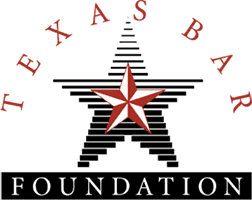
Austin Brain Injury Attorneys
Fighting FOr Victims of Traumatic Brain Injuries Across Texas and the United States
Our Austin brain injury lawyers at National Trial Law have extensive experience handling cases involving traumatic brain injuries, including hypoxic-ischemic brain injuries, on behalf of individuals and families affected by these catastrophic conditions. We recognize that brain damage can have long-lasting, devastating impacts that can change a person’s life forever, and, in many cases, these injuries will alter the lives of the victim’s family and loved ones, as well. As a result, we fight tirelessly to hold responsible parties accountable and secure victims and their families the maximum amount of compensation they are entitled to under the law. Our firm has a proven track record of success and has what it takes to prevail.
Are you a member of the military who sustained a brain injury while in the care of a military medical provider? Some of our biggest case results have been against the government due to the negligence of the V.A. or military medical facilities. We understand how to strategically approach these cases and can advocate for you whether you are military or non-military.
If you or someone you love has suffered a traumatic brain injury or hypoxic-ischemic brain injury, we invite you to call (833) 913-1885 or contact us online to schedule a free initial consultation with our brain injury attorney in Austin. Se habla español.
Recovering Damages for Brain Injuries through Personal Injury Litigation
If you have sustained a traumatic brain injury or hypoxic-ischemic brain injury because of another person’s negligence or recklessness, we are ready to help you get justice. Our Austin brain injury lawyers have a reputation for success and will fight aggressively to secure the compensation you need to move forward with your life.
The first step in recovering damages for brain injuries is to review the details of your case in a phone call with our intake specialist. You should not wait to get in touch, as you will lose your right to recover compensation if you do not file your personal injury claim before the applicable statute of limitations expires.
To expedite the intake process and ensure we have the information we need to fully evaluate your circumstances, we ask that you gather as many of the following documents as possible:
- Medical records
- Medical bills
- Correspondence with healthcare professionals and facilities
- Correspondence with insurance companies
- Photographs of your injuries and the accident scene
- Evidence of lost wages
- Death certificate and autopsy report (if applicable)
If we determine you have a strong claim, one of our skilled attorneys will be assigned to your case. At this point, the attorney-client relationship will be established, and anything you tell your attorney will remain confidential. Your attorney will discuss all of the details of your case and work with you to develop a strategy for pursuing compensation for your brain injuries.
The potential value of a negotiated settlement or trial verdict will depend on the severity of your head injury, the extent to which your life has been altered, the dollar amount of your medical bills, and other factors. The defendant in your case may propose a monetary settlement to reduce litigation expenses and avoid a trial. Accepting this settlement could be in your best interest if the proposed amount fully covers your losses, as you will get compensation much faster than if we are forced to take your case to trial. We will advise when we believe a settlement is fair.
Prevailing in a personal injury case for brain injuries typically allows you to recover compensation for economic and non-economic damages, including:
- Past, current, and future medical expenses
- Financial damages from wages lost during the recovery process
- Lost earning capacity if your injuries prevent you from pursuing your normal course of employment
- Decreased quality of life if your injuries prevent you from engaging in normal, everyday activities
- Strain on relationships with coworkers, friends, and family members
- Physical pain and suffering
- Emotional pain and anguish
- $44,717,681 $44.7MM Trial Judgment: Air Force Birth Injury
- $32,676,410 $32.6MM Trial Judgment: Army Birth Injury
- $18,708,734 Trial Judgment Army Hospital Birth Injury
- $13,690,648 Trial Judgment $13,690,648 Trial Judgment
- $10,000,000 Settlement Military Medical Malpractice
Types of Brain Injuries
An “acquired brain injury” refers to any injury to the brain that is not present from birth, caused by birth trauma, or the result of degenerative or hereditary factors. Acquired brain injuries are divided into two major categories: traumatic brain injuries (TBI) and non-traumatic brain injuries.
What is a Traumatic Brain injury?
A traumatic brain injury (TBI) is a medical condition that results from a sudden blow, jolt, or penetrating injury to the head, which disrupts normal brain function. TBIs can have a wide range of physical, cognitive, and emotional effects.
Healthcare professionals commonly use three main severity classifications for TBIs:
Mild TBI (Concussion):

How Do Traumatic Brain Injuries Occur?
Traumatic brain injuries can result from a sudden, significant blow to the head, so it is possible to sustain one after an accident or because of a physical assault. Some of the leading causes of traumatic brain injuries are auto accidents, slips and falls, and sports-related incidents.
There are several ways someone might sustain a traumatic brain injury, including (but not limited to):
- Car accidents. Motor vehicle accidents are the cause of many serious head injuries. An occupant may suffer a brain injury when their skull hits the steering wheel, windshield, or any other object.
- Truck accidents. Just like a car accident, truck accident victims are at risk of head injury when the skull sustains a violent impact. The forces in a truck accident can be even greater than in a typical car accident because of the size and weight of large trucks.
- Motorcycle accidents. These accidents often result in a loss of consciousness, head injury, and brain damage. The outcomes may be more severe when the motorcyclist’s head strikes the pavement or another object, especially if they are not wearing a helmet at the time of the collision.
- Sports-related accidents. Any sport involving speed, physical contact, and/or hard surfaces can lead to serious head injuries. Hockey, football, lacrosse, baseball, cycling, skateboarding, and soccer are all examples of sports where an athlete could suffer a dramatic blow to the head.
- Slip and fall accidents. Icy or slippery surfaces are responsible for many injuries, particularly when a victim’s head hits the hard floor or a sharp surface as or after they fall.
- Construction accidents. Head injuries at construction sites are frequently caused by slick surfaces, falling debris, and unstable structures.
- Physical assault. If a victim of violence is shot, stabbed, or struck in the head, they may suffer a traumatic brain injury. If a victim is choked or aggressively shaken, they could lose consciousness and suffer hypoxic-ischemic brain injuries.
The Role of Rehabilitation in Brain Injury Recovery
Rehabilitation is a vital component of brain injury recovery, as it helps individuals regain lost skills and abilities and adapt to new ways of living. Depending on the severity of the injury, rehabilitation may include:
- Physical therapy to improve strength, mobility, and balance
- Occupational therapy to help individuals relearn daily activities and develop strategies for managing cognitive and physical challenges
- Speech and language therapy to address communication difficulties
- Neuropsychological therapy to address cognitive and emotional issues
Rehabilitation must begin as soon as possible after a brain injury to maximize recovery potential. According to the Brain Injury Association of America, early intervention can significantly improve outcomes and reduce the long-term effects of the injury.
Creating a Comprehensive Life Care Plan
Life care planning is a crucial aspect of brain injury recovery, as it helps individuals and their families plan for and manage the long-term consequences of the injury. A comprehensive life care plan should address the following areas:
- Medical and rehabilitation needs, including ongoing therapy, medications, and assistive devices
- Home modifications to accommodate physical and cognitive limitations
- Transportation and mobility assistance
- Financial planning, including insurance coverage, government benefits, and long-term care expenses
- Emotional and psychological support for the individual and their family
Developing a life care plan can be a complex process, often requiring the expertise of a team of professionals, including medical and rehabilitation specialists, financial planners, and legal experts. Ideally, life care planning will be a collaborative effort between the individual, their family, and a team of professionals to ensure that all aspects of the individual's needs are addressed.


Real Client testimonials
-
Communicated in a clear and concise way
“I would not hesitate to recommend her to anyone and to have her represent me in the future.”
-
Their commitment to our case was incredible.
“Starting the legal process was daunting, but they instantly put us at ease with their warm demeanor, talent, and professionalism.”
-
Professional and supportive team
“National Trial Law and the entire team were amazing! They were always there to answer questions and provide support.”
-
Grateful for their dedication.
“We are truly grateful for National Trial Law and the dedication they put towards our son's case. The trusts they set up help him immensely.”
Frequently Asked Questions about Brain Injuries in Texas
What Is the Average Payout for a Brain Injury in Texas?
The average payout for a brain injury case will vary depending on the circumstances. Payouts are calculated based on the plaintiff’s quantifiable economic losses as well as non-economic losses. For cases involving medical malpractice, the State of Texas limits non-economic damages to $250,000 per claimant against a single provider or institution and $500,000 per claimant overall. Economic damages are not capped. Our Austin brain injury attorneys can walk you through what you can expect to recover.
How are brain injuries diagnosed?
Brain injuries are typically diagnosed through a combination of clinical evaluation, neurological assessments, and imaging studies like CT scans or MRIs. For mTBIs with long lasting impacts, more specialized care may be necessary to diagnose those injuries, including specialists qualified to run MEGs and DTIs.
Can mild brain injuries (concussions) have long-term effects?
Yes, many individuals experience persistent symptoms, which can affect memory, personality, concentration, and mood.
How can I support someone with a brain injury?
Offer emotional support, encourage them to follow medical advice, and help with daily tasks as needed. Rehabilitation and therapy programs can also be beneficial.
There is no fee for our services unless we win. Call (833) 913-1885 or contact us online to discuss your case with us today.

-
PEER APPROVED
More attorneys named Super Lawyers by Thomson Reuters in the “Personal Injury Medical Malpractice: Plaintiff” category in 2014, 2015, 2016, 2017, 2018, 2019, 2020, 2021, 2022, and 2023 than any other law firm in Texas (Bill Whitehurst, Chip Brees, Michelle Cheng, Jamal Alsaffar, Laurie Higginbotham and Tom Jacob)
-
TEXAS ROOTS
Founded in Austin with more than 50 years of trial experience.
-
NATIONAL REACH
National results in complex personal injury litigation.
-
DEEP BENCH
Many experienced lawyers ready to serve you.
-
SE HABLA ESPAÑOL
Our team has multiple Spanish speaking staff members.





